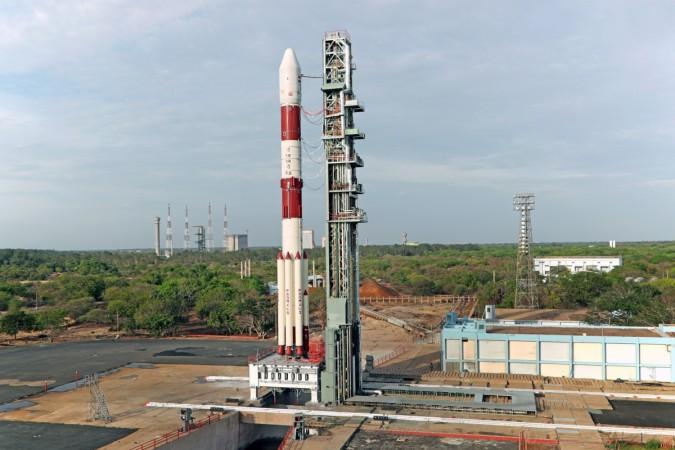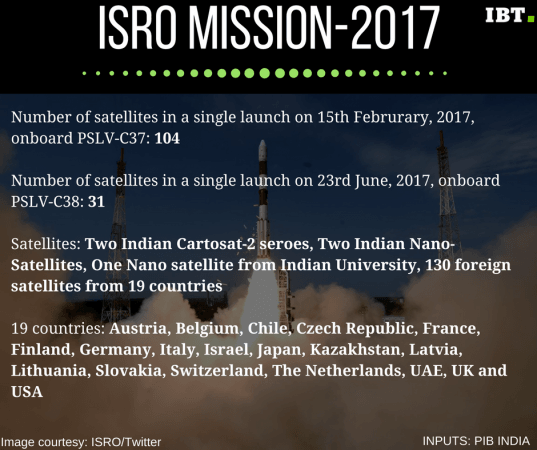
India will launch its first private sector satellite from Sriharikota High Altitude Range (SHAR) at 6.59 pm, on Thursday, August 31. This 1,425 kg IRNSS-1H, which was ideally supposed to be launched in April 2018, will be launched by PSLV.
This private sector satellite will replace one of NAVIC's seven satellites, which is malfunctioning. The NAVIC is a system of seven home-made navigational satellites which is currently powering the Swadeshi Global Positioning System, NDTV reported.
"For the first time, a private company has been involved in the integration of a satellite. Progressively, we will involve more and more companies in satellite assembly activities," ISRO chairman AS Kiran Kumar told TOI.
India had reportedly needed two spare satellites for quick launch. With malfunctioning of one of the seven satellites, when three atomic clocks went out of order, the moment came sooner than expected.
In a period of over eight months, a consortium led by Alpha Design Technologies, which is a defence equipment supplier from Bengaluru, built this new satellite. And this was built under the complete supervision of 70 Indian Space Research Organisation (ISRO) scientists.
With changing times, India's demands are also growing. Currently, India requires 17 satellites per year to meet a whole range of needs that include communication, weather prediction, earth observation and military use.
The Indian space agency has conducted various missions in the past three decades. So far, the agency has had 150 successful missions beginning with the Aryabhatta in 1975.
But India's new mission is to become one of the key suppliers of commercial satellites. And to achieve this private sector had to be roped in as it being reportedly said that the private sector is expected to take the lead.
Satellite fabrication is a costly affair. It requires high precision as they cost lump sum and after the launch there is no scope for repair for duration of 10 years.

But India's performance has been fast paced in this industry and has been building and sending satellites for other countries as well. Between 1990 and 2014, ISRO had launched nearly 40 satellites for foreign countries which helped it earn Rs 484 crore.
Indian Space Research Organisation's (ISRO) PSLV had written a new chapter in the history of space exploration by launching 209 satellites from 28 countries in a single attempt, thus turning into a money-spinner for India's ISRO. The last expedition was in February when Polar Satellite Launch Vehicle (PSLV) sent 104 satellites to space.
.














